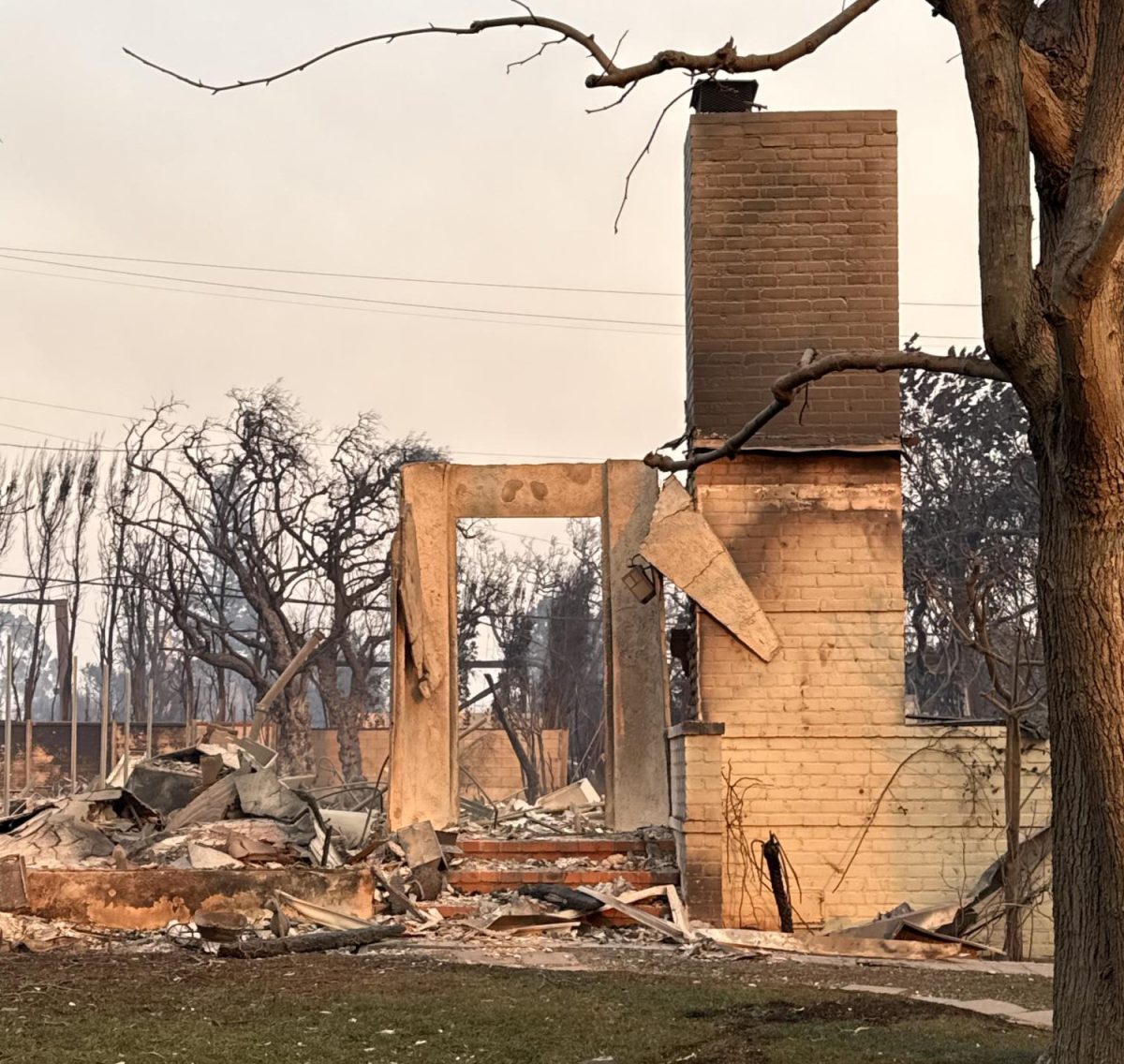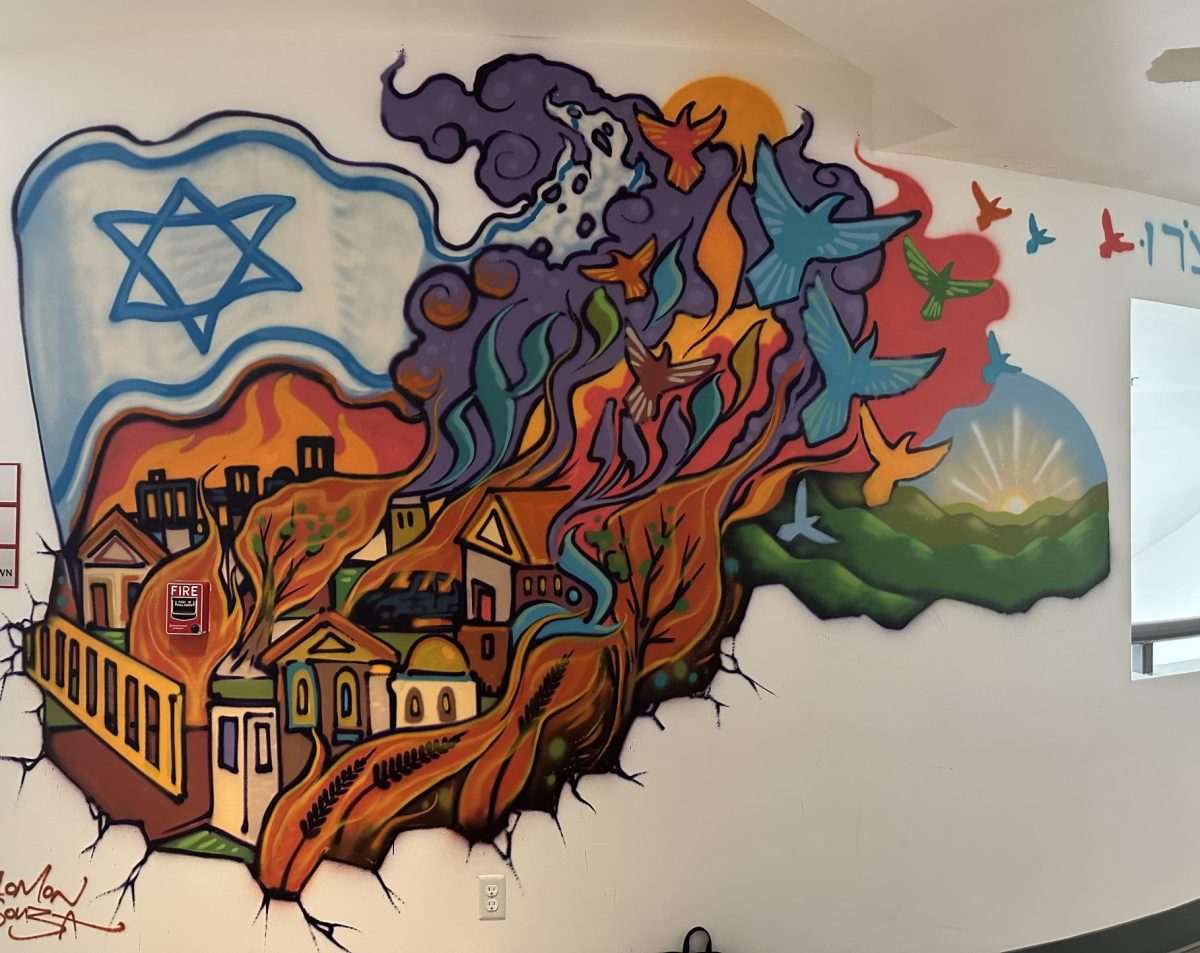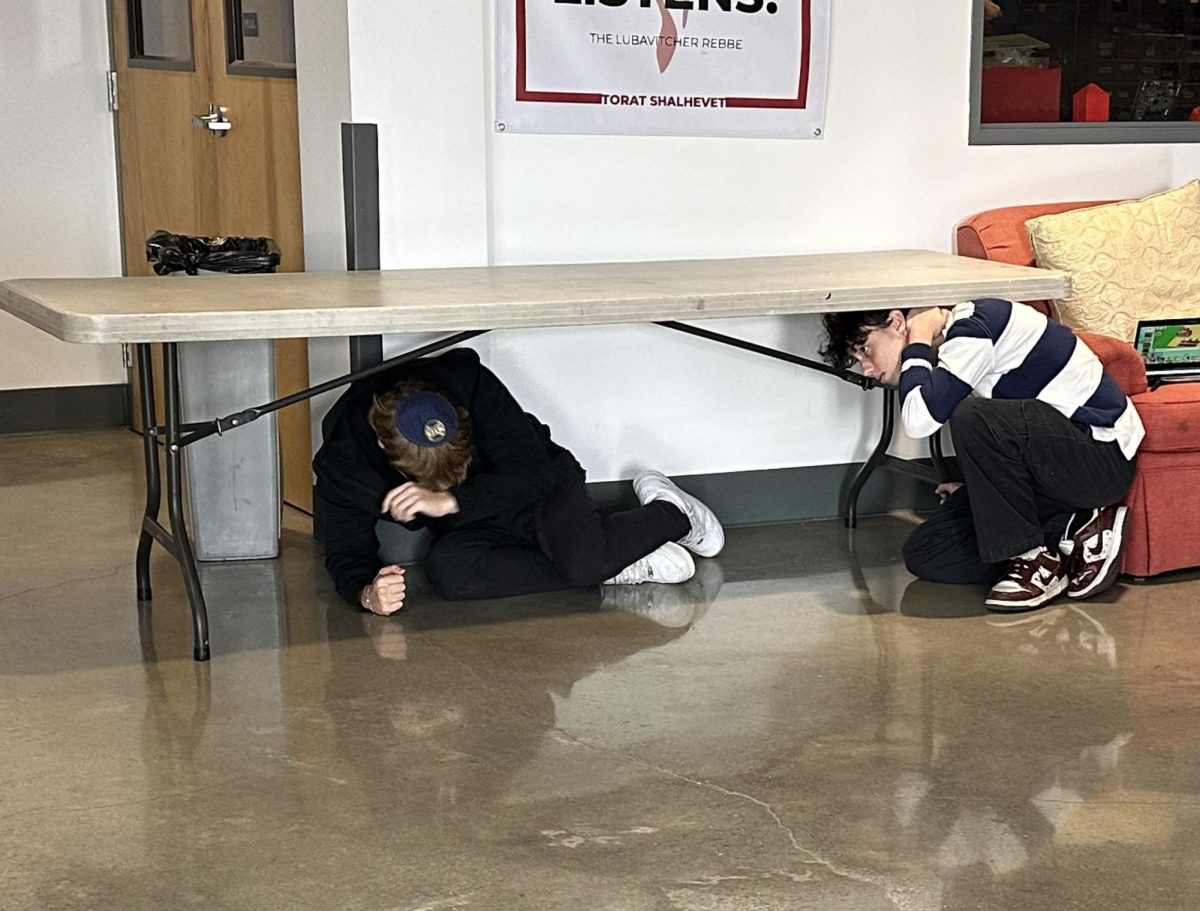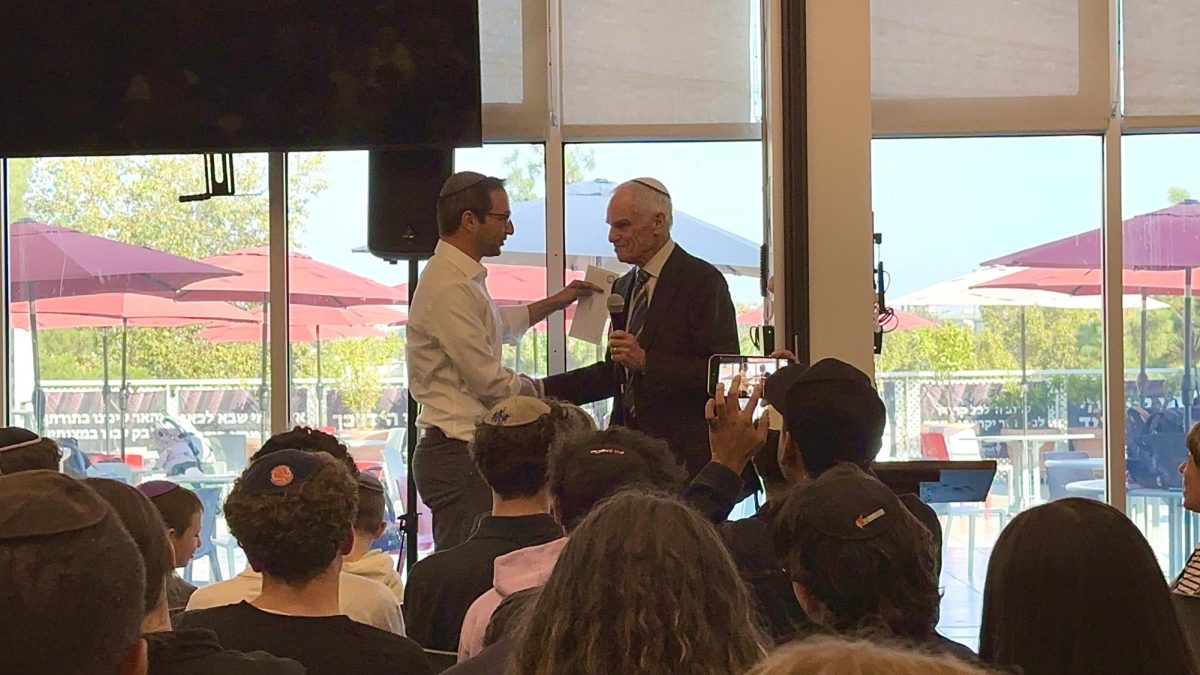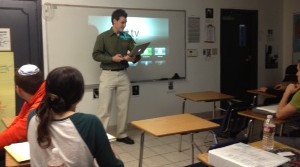
Looking to enrich learning this year, many Shalhevet teachers have incorporated the use of Twitter and other technologies into their curricula, helped by new equipment that projects a variety of apps onto classroom screens — at least when it’s working.
Although plagued by connectivity problems, iPads are being used in nearly every classroom, according to an informal Boiling Point survey. The tablet devices were given to all the teachers in August, and every classroom now has either a Smart Board, LCD TV, or projector to display them “live” during class.
The idea is to reach different kinds of learners, make learning more exciting, and bring new tools and skill sets into the classroom.
“Sometimes it makes it feel like it’s not traditional learning,” said English teacher Ms. Michelle Crincoli, who uses Twitter and blogs in class. “Learning might even feel fun…
“We have a private blog, and students do most of their work online. Students have to create their own blog posts and respond to the posts of other students.”
Modern Middle East teacher Jason Feld used Twitter with his 11th-grade students during the October presidential debates. Mr. Feld also uses Inspiration Maps, the Smart Board, and YouTube in his classes.
“Twitter gives us access to world events in real time,” said Mr. Feld. “We were able to tweet comments and questions during the debates.”
Junior Melissa Ohana enjoyed the exercise.
“We called it a Twitter fest,” said Melissa. “I loved using Twitter because it’s a fun way to share your ideas and thoughts with the rest of your class and teachers.”
Jewish texts are also involved. In a new twist on the intricately designed pages of the Talmud, Judaic Studies teacher Reb Tuli Skaist has been color-coding the text and projecting it onto an LCD screen from his iPad, using an app called Notability.
Reb Tuli uses yellow to represent a pasuk (Biblical verse), pink for objections or questions, and blue to indicate an answer or response. Sophomore Margo Feuer said it was helpful.
“Sometimes the Gemara can be really complicated,” said Margo. “It’s much easier to understand when I know ahead of time what to look for, and it makes more sense this way.”
Shalhevet’s new Director of Professional Development and Innovation, Mr. Jason Ablin, spearheaded the introduction of iPads and has also taken responsibility for training teachers to use them.
Mr. Ablin, who formerly was Head of School at Milken and started a school-wide laptop program there, has led seven professional development sessions so far, ranging from one hour to all day in length. He also formed a student Technology Team, which helps the teachers learn how to use the apps.
Money for the iPads came from the school’s operating budget and not special grants, he said, and he declined to say exactly how much it all cost. Next year, he wants all freshmen and sophomores to buy iPads.
“The possibilities are so extraordinary,” said Mr. Ablin.
Some teachers are using new technology often, and almost all teachers are using it sometimes.
Tanach and AP Statistics teacher Ms. Atara Segal uses an app called Explain Everything to make videos that her students can watch at home. She also makes slideshows.
Math and science teacher Mr. Chris Buckley uses the iPad with the mirroring function on the flat screen TV in his classroom, meaning he can show his classes what appears on his iPad, rather than having to write on a whiteboard.
But there have been problems, too. Both teachers and students complained about breakdowns, especially with new Apple TV devices that enable the iPads to project onto white boards.
When technology breaks down in the middle of class, a teacher has to stop the lesson until it gets fixed. AP History and Government teacher Mr. William Reusch likes the idea of increasing technology, but definitely gets frustrated when it stops working.
“The Apple TV does boot me off or hesitate quite a bit,” said Mr. Reusch. “I can usually figure it out fairly quickly, but reliance on the Apple TV remote and everything makes me a bit frustrated. I feel like class is wasted.”
Reb Tuli Skaist also feels it breaks down too often.
“It is very frustrating when you depend on the iPad and there is some sort of glitch,” Reb Tuli said. “You can prepare a whole lesson on the iPad, and if the wireless is down, there goes your lesson.”
Then the teacher has to decide whether to try to fix it or just keep going without it.
“Usually the problem is fixable, but I don’t have the wherewithal to fix it immediately,” said History teacher Dr. Michael Yoss. “It just wastes my time.”
Students have several gripes. Many complained about the breakdowns, and Junior Annie Asch did not appreciate the “Twitter fest.”
“I don’t find it as useful as my teachers hoped it would be,” said Annie. “Besides the fact that it barely gets used, I find myself in a struggle to get across a legitimate and well-thought-out point using only 160 characters.”
“I’m usually happy to see it come on, but I think it really discourages learning when a teacher doesn’t know how to work the technology,” said sophomore Akiva Reuveni.
Junior Benny Balzas said connectivity isn’t the only problem.
“Every once in a while an app crashes or the iPad stops working,” said Benny. “I think it’s very frustrating for the teachers.“
Mr. Ablin believes these issues will lessen with time, and said technology is here to stay.
“The more people use it,” Mr. Ablin said, “the more they become problem solvers with the way the technology is used, and they solve the problems faster and more efficiently.”

